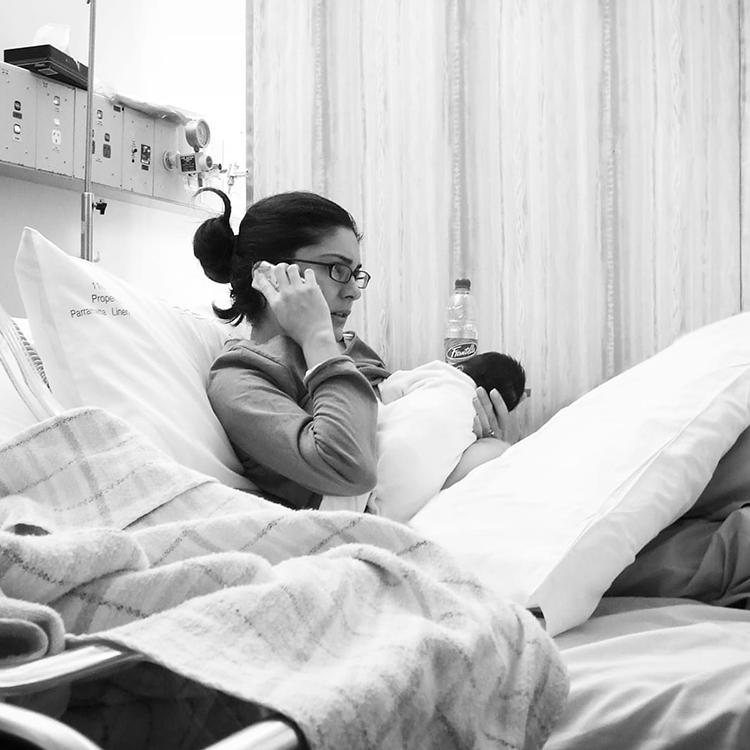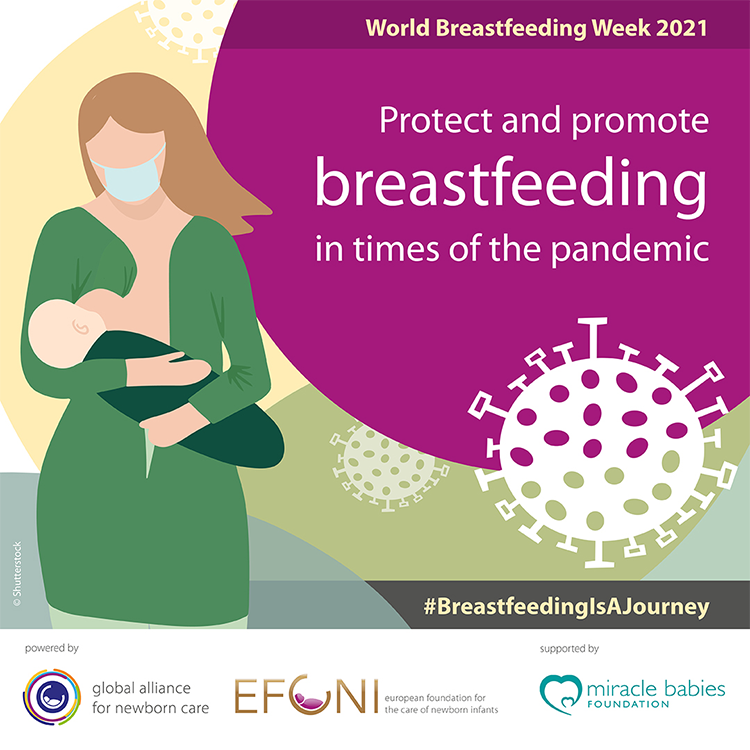'Breastfeeding Is A Journey': World Breastfeeding Week 2021
TUESDAY, AUGUST 3, 2021


“I remember not knowing this photo was being taken - I think the laugh was that I was multitasking.
This was the day after Jasper, my third, was born and what I see in this picture is how far I had come. It certainly wasn't this easy with my first two. I had so much to learn.
Because of the high level benefits to survival and outcomes for premature and sick babies, I committed to breastfeeding each of my boys until they were one year corrected (meaning I added the number of weeks they were early to that year). Although I loved it, it was still a struggle, it was sometimes hard, sometimes frustrating, sometimes overwhelming. Sometimes I was applauded for it, and other times I was judged for it but I am eternally grateful that our health systems, particularly through our NICUs, had avenues for support. I believe it is a big part of why I ended up so successful at it which in turn provided maximum benefit to the health of my premature boys.”
Miracle Babies Founder and Miracle Mum, Melinda Cruz.
This week is World Breastfeeding Week (1st - 7th August). This year’s theme is Breastfeeding Is A Journey and we believe that every mother should be encouraged to find the best way for her and her baby.
Miracle Babies strongly supports breastfeeding and wants to help increase the number of newborns that benefit from breastmilk, especially babies born premature or sick at birth.
Breast milk is important for all babies but for premature and sick newborns, it provides vitally important health benefits and acts like a medicine that only mothers milk can provide. Research has shown that the composition of a mother’s breast milk is different if her baby is born premature than if her baby was born full term. It is tailored to the needs of a premature gut and is highly beneficial for baby. The longer a premature or sick baby has access to breastmilk, the more profound and long-lasting the benefits.
"Before your baby is born, you spend time imagining their birth and how you would care for them. You may have even spent time thinking about how you planned to feed your little one after their arrival. When your baby is born premature or sick and admitted to a Neonatal Intensive Care Unit (NICU) or Special Care Nursery (SCN), you find yourself needing to adjust your dreams and expectations." Melinda Cruz.
The World Health Organization (WHO) recognises breastmilk as the best nutritional food source for newborns as it is vital for the healthy growth and development of infants. It also has important implications for the health of new mothers. Both WHO and UNICEF recommend that breastfeeding should be initiated within one hour of a baby’s birth and should continue during the first six months of the child’s life and ideally until the age of two.
But what happens when your baby is born too early to yet know how to suck, swallow and breathe, or too sick to feed from the breast? What happens when your baby is born during a pandemic that has left many mothers uncertain as to whether breastfeeding is safe or whether there is a risk of transmitting infection with COVID-19? The WHO has advocated breastfeeding from the beginning of the pandemic and strongly advocates breastfeeding for preterm and sick babies, so that they too will emerge healthy and strong through this difficult time. The WHO and GLANCE (Global Alliance for Newborn Care) are calling on all healthcare providers around the world to ‘Protect and promote breastfeeding in times of the pandemic’ and to support all mothers embarking on a breastfeeding journey.
“My baby was born at 26 weeks, and I expressed for the first 9 weeks and had enough milk to get me to special care when I stopped expressing. I was exhausted and mentally unstable. Setting an alarm in the night to get up and attach a machine to my breast (and not my baby) and imagine what he was doing (in hospital) the whole time was unbearable for me.” Miracle Mum (name protected at mothers request)
The reality is many mothers may be thrown into an exhausting new world of hand-expressing every 3 hours during those first few days before being moved to a pump where you could find yourself for days or weeks on end trying to provide milk for your little one who remains in critical care.
To support those mothers and babies who do not have access to their mother’s own milk, human milk banks will continue to play a vital role in the care of our countries most vulnerable babies. It is the right of every baby being cared for in a NICU or SCN to have access to their mother’s own milk or donor milk - the only milk that has been designed specifically by nature to give them the best help when they are at such a high risk of serious complications or sadly, death.
For support in Australia, contact:
Miracle Babies Foundation
www.miraclebabies.org.au
NurtureLine 24hr family support helpline
1300 622 243 (1300 MBABIES)
Australian Breastfeeding Association
www.breastfeeding.asn.au
1800 686 268
To donate breast milk, contact:
LifeBlood MilkBank
www.milkbank.com.au
1300 459 040




